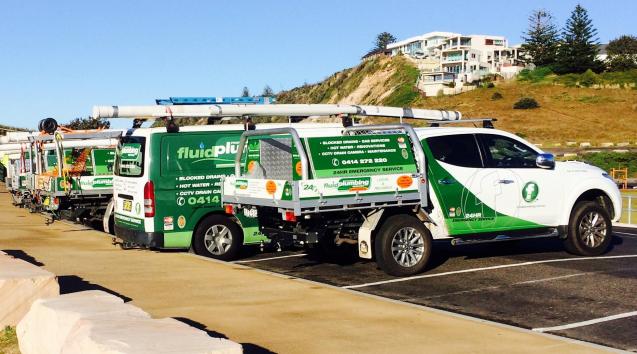
Eco-Friendly Alternatives to Traditional Electric Use in Newcastle
By Fluid Plumbing|March 25, 2024
Newcastle, situated on Australia's east coast, is a city pulsing with industrial, commercial, and residential development. With this growth, there has been a corresponding increase in electricity consumption, underlining the urgency to explore more sustainable methods of power generation. This article delves into some of these methods, such as solar and wind energy, hydropower, and energy conservation, each representing a distinct approach to the green revolution in Newcastle’s power sector. For the residents of Newcastle, understanding and implementing these strategies are integral to reducing the city's carbon footprint, minimising the strain on resources, making informed decisions about future electric use, and complying with evolving governmental policies geared towards environmental sustainability.
The Need for Eco-Friendly Electricity Alternatives in Newcastle
Newcastle, like many industrialised cities worldwide, is grappling with the issue of escalating energy demand. Predominantly fueled by non-renewable resources, this mounting hunger for electricity is tied to several significant concerns. The use of traditional energy resources has led to environmental degradation, notably contributing to carbon emissions that exacerbate global warming. These environmental repercussions go beyond national borders, impacting global climate patterns, sea levels, and biodiversity.
From a more localised perspective, the rising financial costs associated with traditional electricity use burdens consumers and the wider community. The economic aspect of energy consumption is a burgeoning issue, with an increasing number of citizens feeling the pinch of higher utility bills. It is evident that these mounting financial pressures are a significant consideration that factors affecting Newcastle’s electricity bills often neglect.
Government regulations, both at local and national levels, have demanded a fair transition from conventional fossil fuels toward renewable energy sources. These green initiatives align Newcastle’s energy policy with global sustainability goals, further necessitating the exploration and adoption of eco-friendly alternatives.
Solar Energy: An Abundant and Clean Power Source
One of the most potent alternatives to traditional electric use lies in the harvesting of the sun's energy. Solar power provides a way to harness one of nature’s most abundant resources, converting it directly into electricity. Solar energy has many advantages, including its availability and renewability. It is an abundantly inexhaustible resource that relies on daylight, making it an ideal solution for a region like Newcastle, blessed with ample sunlight.
Adopting solar power has a significant effect on reducing carbon emissions, promoting an environment free from the polluting by-products of traditional energy production. On an economic level, despite the initial costs associated with installation, solar power promises long-term cost savings. Houses and businesses that successfully transition to solar power not only recoup initial expenditure over time but also experience sizeable reductions in monthly energy bills.
Several case studies across Newcastle underscore solar power's impressive potential. Both homes and commercial establishments have reported substantive benefits after transitioning to this renewable energy source. Schools, hospitals, and businesses make up a growing network of solar-powered establishments across the city. The installation process is simple: solar panels on rooftops or other suitable locations capture sunlight, inverters convert this acquired power, and battery storage systems store unused electricity for later use.
Wind Power: Harnessing Newcastle's Coastal Breezes
Newcastle’s coastal location makes it a prime candidate for generating wind power, another eco-friendly alternative. Breezes crossing the city's coastline have considerable potential to be transformed into electricity via wind turbines. Closely tied to natural weather patterns, wind power represents an infinite resource, respectful of the planet’s bio-capacity. Furthermore, this form of renewable energy emits zero greenhouse gases during the power production process, epitomising clean energy generation.
Utilising this energy source can also bring about important socioeconomic benefits. Strategically placed wind farms create job opportunities, encouraging the growth of a homegrown group of renewable energy specialists. Some wind farms, already in operation around Newcastle, are producing enough energy to power thousands of homes, highlighting the promise this alternative energy source holds.
Hydropower: An Untapped Potential for Newcastle
Hydropower or water power might not be the first energy source that springs to mind when thinking of Newcastle's energy landscape. But it represents a valuable, untapped eco-friendly alternative. Unlike the giant dams often associated with hydropower, small-scale systems, known as micro-hydropower or pico-hydropower, could be deployed along local streams or rivers to provide a consistent power supply.
Hydropower systems convert kinetic energy from flowing water to mechanical energy, which is then used to produce electricity. These systems minimize carbon emissions and provide a reliable power source even in seasons when sunlight or wind might be less available. Newcastle, with its network of waterways, can explore harnessing hydropower, considering, of course, environmental impacts on local ecosystems.
Energy Efficiency at Home - Small Changes, Big Impact
Enhancing energy efficiency is a less conspicuous but no less important pillar in the journey toward sustainable electricity use. Considerable energy and cost savings can be realised through the conscious use of energy-efficient appliances and lighting, superior insulation, and overall prudent energy use. Homeowners in Newcastle are in a powerful position to contribute to energy efficiency, with their collective actions wielding a considerable impact on city-wide energy consumption.
Newcastle’s Role in the Green Energy Revolution
Newcastle's response to the urgency of green energy solutions has been laudable. Both the government and the private sector have risen to the challenge, collaborating to promote and implement eco-friendly alternatives. There are encouraging signs all around the city, with households, businesses, and public facilities gradually transitioning to cleaner energy sources. The government has launched several incentive schemes to encourage this transition, and Newcastle’s tertiary institutions are collaborating with industry partners to develop the next generation of clean technologies.
Looking forward, Newcastle has the potential to lead the region in renewable energy adoption, a crucial component in averting the worst impacts of climate change. This movement is significant not just for present Newcastle residents, but also the ones to come, ensuring that future generations can inherit a city—and a planet—that continues to thrive.
Conclusion
The goal of transitioning to eco-friendly electricity usage in Newcastle requires a collective effort from individuals, corporations, the government, and wider society. While the task can seem daunting, the options available—solar power, wind energy, hydropower, and energy conservation—represent tangible opportunities for change. Each Newcastle resident can contribute to a shared vision of a greener Newcastle, reducing our collective carbon footprint, and providing a healthier environment for future generations. In essence, the path toward greener electricity usage is not just a journey for Newcastle; it is a journey for all of us.
The Need for Eco-Friendly Electricity Alternatives in Newcastle
Newcastle, like many industrialised cities worldwide, is grappling with the issue of escalating energy demand. Predominantly fueled by non-renewable resources, this mounting hunger for electricity is tied to several significant concerns. The use of traditional energy resources has led to environmental degradation, notably contributing to carbon emissions that exacerbate global warming. These environmental repercussions go beyond national borders, impacting global climate patterns, sea levels, and biodiversity.
From a more localised perspective, the rising financial costs associated with traditional electricity use burdens consumers and the wider community. The economic aspect of energy consumption is a burgeoning issue, with an increasing number of citizens feeling the pinch of higher utility bills. It is evident that these mounting financial pressures are a significant consideration that factors affecting Newcastle’s electricity bills often neglect.
Government regulations, both at local and national levels, have demanded a fair transition from conventional fossil fuels toward renewable energy sources. These green initiatives align Newcastle’s energy policy with global sustainability goals, further necessitating the exploration and adoption of eco-friendly alternatives.
Solar Energy: An Abundant and Clean Power Source
One of the most potent alternatives to traditional electric use lies in the harvesting of the sun's energy. Solar power provides a way to harness one of nature’s most abundant resources, converting it directly into electricity. Solar energy has many advantages, including its availability and renewability. It is an abundantly inexhaustible resource that relies on daylight, making it an ideal solution for a region like Newcastle, blessed with ample sunlight.
Adopting solar power has a significant effect on reducing carbon emissions, promoting an environment free from the polluting by-products of traditional energy production. On an economic level, despite the initial costs associated with installation, solar power promises long-term cost savings. Houses and businesses that successfully transition to solar power not only recoup initial expenditure over time but also experience sizeable reductions in monthly energy bills.
Several case studies across Newcastle underscore solar power's impressive potential. Both homes and commercial establishments have reported substantive benefits after transitioning to this renewable energy source. Schools, hospitals, and businesses make up a growing network of solar-powered establishments across the city. The installation process is simple: solar panels on rooftops or other suitable locations capture sunlight, inverters convert this acquired power, and battery storage systems store unused electricity for later use.
Wind Power: Harnessing Newcastle's Coastal Breezes
Newcastle’s coastal location makes it a prime candidate for generating wind power, another eco-friendly alternative. Breezes crossing the city's coastline have considerable potential to be transformed into electricity via wind turbines. Closely tied to natural weather patterns, wind power represents an infinite resource, respectful of the planet’s bio-capacity. Furthermore, this form of renewable energy emits zero greenhouse gases during the power production process, epitomising clean energy generation.
Utilising this energy source can also bring about important socioeconomic benefits. Strategically placed wind farms create job opportunities, encouraging the growth of a homegrown group of renewable energy specialists. Some wind farms, already in operation around Newcastle, are producing enough energy to power thousands of homes, highlighting the promise this alternative energy source holds.
Hydropower: An Untapped Potential for Newcastle
Hydropower or water power might not be the first energy source that springs to mind when thinking of Newcastle's energy landscape. But it represents a valuable, untapped eco-friendly alternative. Unlike the giant dams often associated with hydropower, small-scale systems, known as micro-hydropower or pico-hydropower, could be deployed along local streams or rivers to provide a consistent power supply.
Hydropower systems convert kinetic energy from flowing water to mechanical energy, which is then used to produce electricity. These systems minimize carbon emissions and provide a reliable power source even in seasons when sunlight or wind might be less available. Newcastle, with its network of waterways, can explore harnessing hydropower, considering, of course, environmental impacts on local ecosystems.
Energy Efficiency at Home - Small Changes, Big Impact
Enhancing energy efficiency is a less conspicuous but no less important pillar in the journey toward sustainable electricity use. Considerable energy and cost savings can be realised through the conscious use of energy-efficient appliances and lighting, superior insulation, and overall prudent energy use. Homeowners in Newcastle are in a powerful position to contribute to energy efficiency, with their collective actions wielding a considerable impact on city-wide energy consumption.
Newcastle’s Role in the Green Energy Revolution
Newcastle's response to the urgency of green energy solutions has been laudable. Both the government and the private sector have risen to the challenge, collaborating to promote and implement eco-friendly alternatives. There are encouraging signs all around the city, with households, businesses, and public facilities gradually transitioning to cleaner energy sources. The government has launched several incentive schemes to encourage this transition, and Newcastle’s tertiary institutions are collaborating with industry partners to develop the next generation of clean technologies.
Looking forward, Newcastle has the potential to lead the region in renewable energy adoption, a crucial component in averting the worst impacts of climate change. This movement is significant not just for present Newcastle residents, but also the ones to come, ensuring that future generations can inherit a city—and a planet—that continues to thrive.
Conclusion
The goal of transitioning to eco-friendly electricity usage in Newcastle requires a collective effort from individuals, corporations, the government, and wider society. While the task can seem daunting, the options available—solar power, wind energy, hydropower, and energy conservation—represent tangible opportunities for change. Each Newcastle resident can contribute to a shared vision of a greener Newcastle, reducing our collective carbon footprint, and providing a healthier environment for future generations. In essence, the path toward greener electricity usage is not just a journey for Newcastle; it is a journey for all of us.



